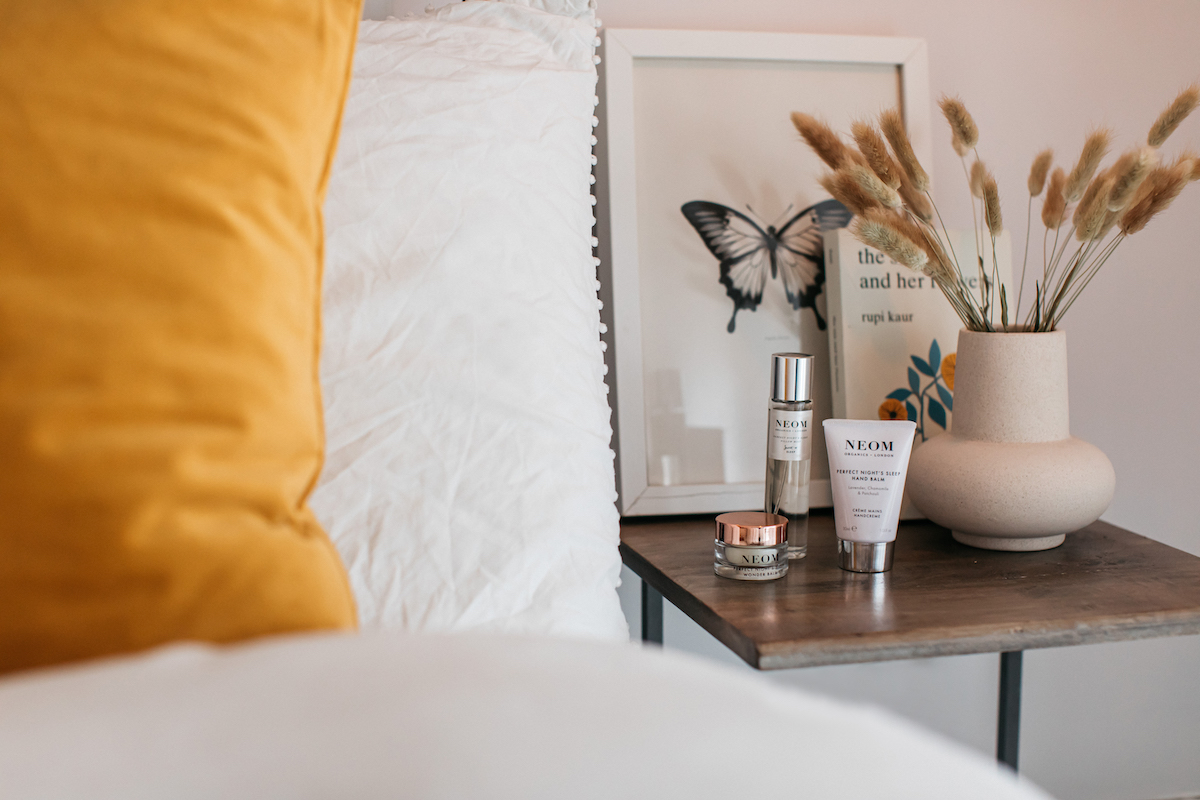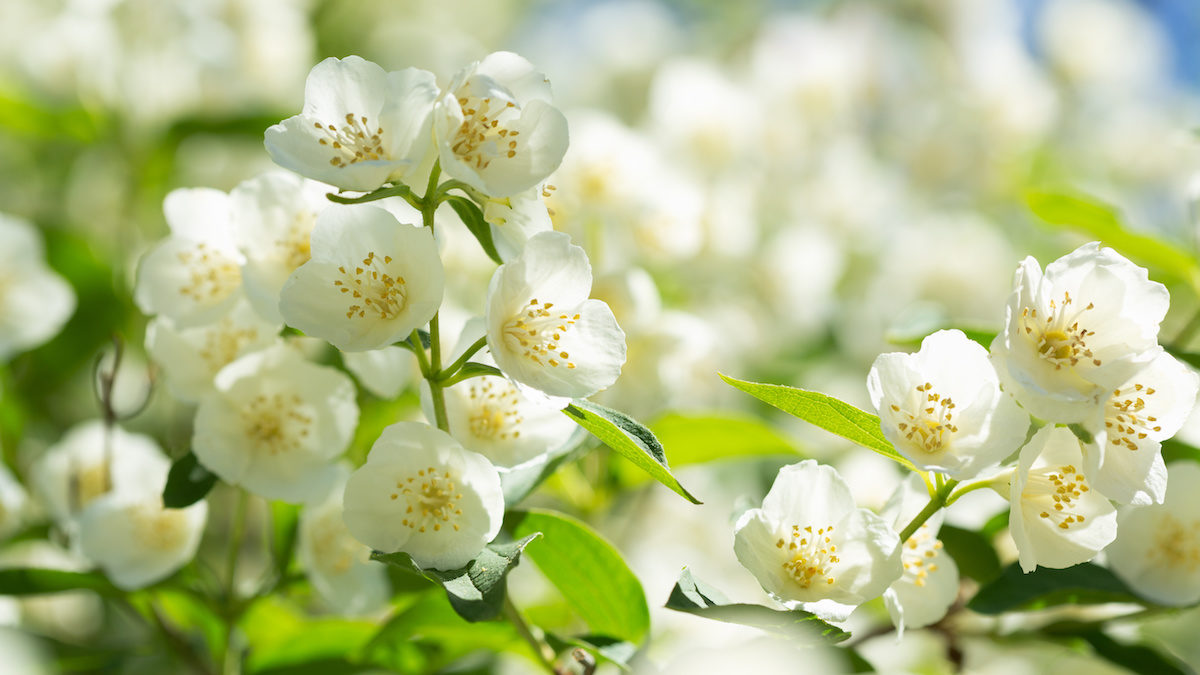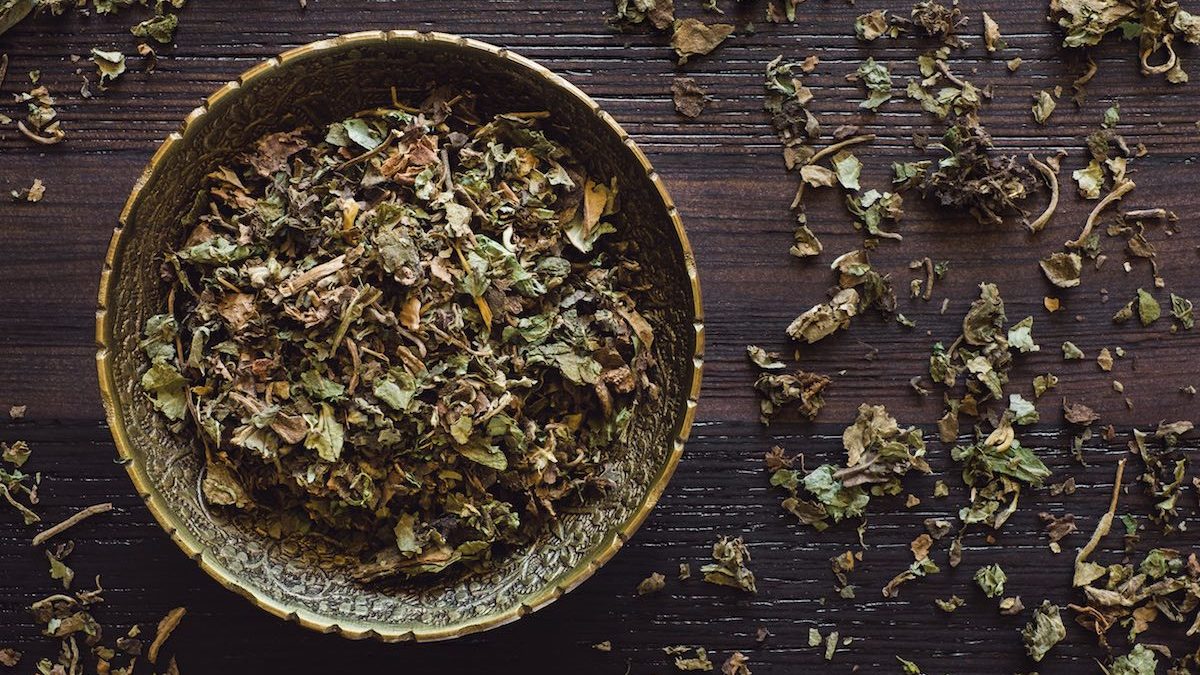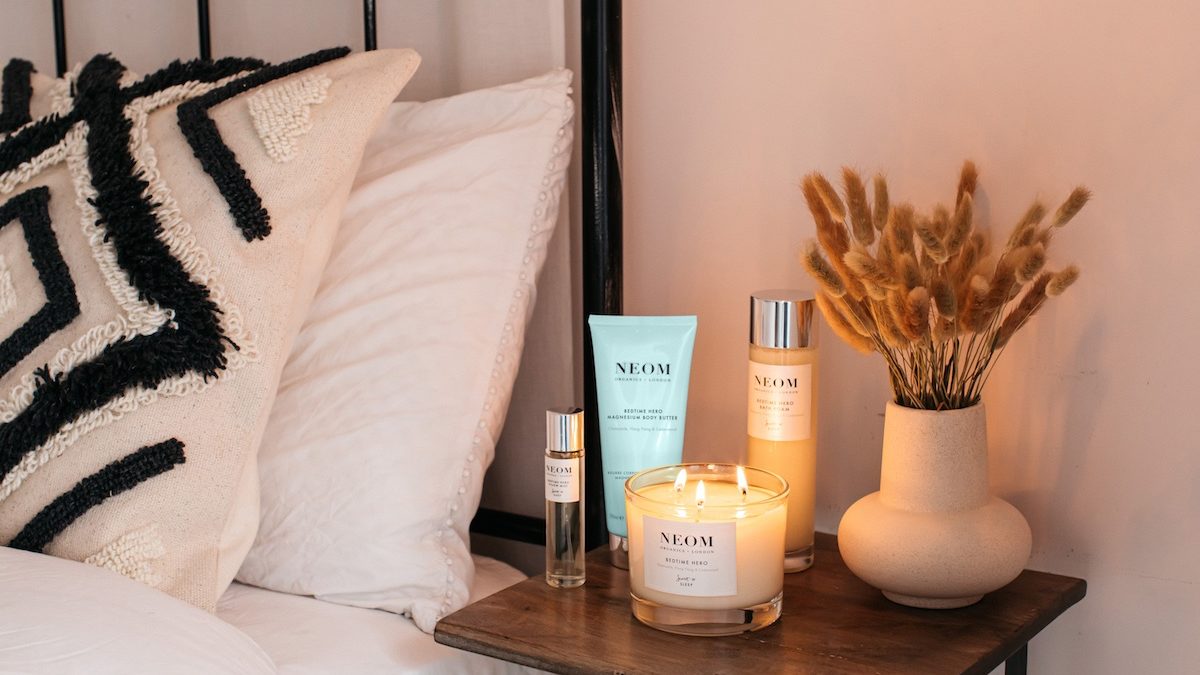6 Scents To Help You Get a Better Night’s Sleep, With NEOM Organics

For those to whom sleep doesn’t come easy, cracking the code and getting a good night’s rest can seem like mission impossible whatever number they’re on now. Luckily, the sweet science of sleep is here to help. From 5-HTP and nootropics, to weighted blankets and white noise machines, there’s now an abundance of well-researched tools to use.
These include the use of scents, smells, and essential oils with a 2017 study from Tokyo Ariake University of Medical and Health Sciences finding that inhalation aromatherapy had a marked, positive effect on symptoms of sleep disturbance in 19 elderly individuals with dementia, while a systemic review published in the Journal of Alternative and Complementary Medicine found that the majority of the 15 studies on the subject as a whole backed the link between the use of essential oils and better sleep.
“As you inhale essential oils, calming signals are sent to your brain to help you relax for sleep,” explains Nicola Elliott, Founder and Creative Director at NEOM Organics. The London-based fragrance brand are experts in the field, and have recently plunged their expertise into The Sleep Edit, a collection of sleep aids to scent you to sleep, including their lavender, chamomile, and patchouli sleep mist, and Form’s very own ZZZZs.
To celebrate the edit we quizzed Elliott on the best essential oil scents for sleep, from crowd-pleasing lavender to some lesser-known fragrances, including a note on how to use them.
The Best Essential Oil For Sleep
Lavender
Easy-to-grow and a summer favourite, lavender is a member of the mint family and is believed to have antiseptic and anti-inflammatory properties.
“Lavender is a well-known soothing oil,” says Elliott. “It is usually considered the most popular essential oil for sleep and relaxation. Research into the use of lavender oils suggests it may calm the nervous system by lowering blood pressure, heart rate, and skin temperature.
“The oil that NEOM use is picked at high altitude and steam distilled. We only use this particular lavender because it gives the purest, most relaxing effect.”
Jasmine
“Alongside lavender, jasmine is one of the most well-known soothing and relaxing oils,” says Elliott. “The calmer and more relaxed we feel, the more likely our mind can switch off and therefore have a longer, deeper sleep.”
Researchers from Ruhr Universität in Bochum, Germany found that jasmine increased the neurotransmitter GABA (gamma-aminobutyric acid) by more than five times, making the scent as powerful as some pharmaceutical drugs.
GABA works by attaching itself to a protein in your brain known as a GABA receptor, which then produces a calming effect throughout your central nervous system. This can help ease anxiety, stress, fear, and all those other dastardly emotions that tend to keep us up at night.

Chamomile
“Chamomile is also a lovely alternative which is very beneficial for helping improve sleep,” says Elliott. “It is a popular remedy as it contains antioxidants that may promote sleepiness.”
For years, chamomile tea has been used as a natural remedy to reduce inflammation and treat insomnia. The daisy-like plants calming effect may be attributed to an antioxidant called apigenin, which binds to specific receptors in your brain to initiate sleep. In fact, a study in 60 nursing home residents found that those who received 400 mg of chamomile extract daily had significantly better sleep quality than those who did not.
Patchouli
Aftershave connoisseurs will certainly be au fait with the sweet and musky patchouli scent. Like most other essential oils on this list, it has a whole host of anti-inflammatory properties, and can even be found in some insect repellents.
If you’ve already made sure the bed bugs won’t bite, then you’ll likely be more interested in its sleep-aiding abilities though. Well, a preliminary study published in the Journal of Natural Medicines in 2011 found that inhaling the aroma of patchouli essential oil may have sedative effects that could be useful in treating sleep issues. That’s another one to add to your essential oil arsenal then.

Cedarwood
The essential oil cedarwood is a substance derived from the needles, leaves, bark, and berries of cedar trees, which coincidentally are the trees most often used in making pencils. It’s an unsurprisingly woodsy smell, fresh and slightly sweet.
Cedarwood also has natural sedative properties to slow brain activity and prep you for sleep, while the predictably outdoorsy smell is thought to promote feelings of safety and tranquility.
Ylang Ylang
So good they named it twice, ylang ylang is a yellow, star-shaped flower that grows on the Cananga tree, a tropical species native to countries surrounding the Indian Ocean.
The essential oil derived from the flower is commonly used in shampoo and soap, with a fruity and floral smell that’s most similar to jasmine on this list of six. Research has found that it can reduce a number of responses linked with your autonomic nervous system, including lowering blood pressure and heart rate, which in turn help to set you up for deep sleep.
The Best Ways To Apply A Scent Before Sleep
So now you know the magnificent six, how exactly do you use them before bed? “A pillow mist is an easy and efficient way to apply a scent,” says Elliott. “A few spritzes on your pillow in preparation for sleep can do wonders to your stress levels.
“Lavender and jasmine based candles are another lovely ritual to have before bed. After you have finished work and you are ready to relax, lighting a candle in your living room to create a cosy, calming vibe is the best way to help you unwind.”
A less obvious way of applying a scent before sleep is within your skincare regime, with Elliott recommending a lavender-based face oil from Neom. “Not only will this absorb into your skin so that you are glowing before bed, but the fragrance will also stay with you throughout the night.”

Shop The NEOM Sleep Edit featuring Form’s ZZZZs supplements here.


















